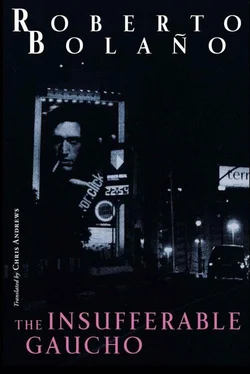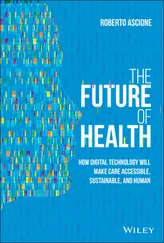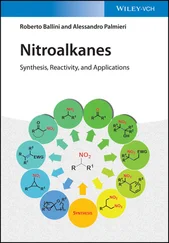He spent the next day en famille , so to speak. The little boy’s name was Marc; Rousselot found him to be very bright (as well as speaking better French than he did). The novelist spared no expense: they had breakfast in the center of Paris, went to a park, had lunch in a restaurant on the Rue de Verneuil, which he had been told about in Buenos Aires, then they went rowing on a lake, and finally they visited a supermarket where Simone bought all the ingredients for a proper French meal. They took taxis everywhere. As they waited for ice-creams on a café terrace on the Boulevard Saint-Germain, Rousselot recognized a pair of famous writers. He admired them from a distance. Simone asked him if he knew them. He said no, but he was a passionate reader of their books. Then go and ask them for an autograph, she said.
At first it seemed a perfectly reasonable idea, the natural thing to do, but at the last moment Rousselot decided that he didn’t have the right to annoy anyone, least of all people he’d always admired. That night he slept in Simone’s bed; they covered each other’s mouths to stop their moans waking the child, and made love for hours, violently at times, as if loving each other were the only thing they knew how to do. The next day he returned to his hotel before the child woke up.
His suitcase had not been put out in the street as he had feared, and no one was surprised to see him appear out of nowhere, like a ghost. At reception there were two messages from Riquelme. The first was to say he had found out how to locate Morini. The second was to ask if Rousselot was still interested in meeting him.
He showered, shaved, brushed his teeth (a horrifying experience), put on clean clothes and called Riquelme. They talked for a long time. Riquelme told him that a friend of his, a Spanish journalist, knew another journalist, a Frenchman, who was a freelance movie, theater and music critic. The French journalist had been a friend of Morini’s and still had his telephone number. When the Spaniard had asked for the number, the Frenchman had given it to him without a second thought. Then Riquelme and the Spanish journalist had called Morini’s number without getting their hopes up, and were amazed when the woman who answered told them that they had indeed reached the director’s residence.
Now all they had to do was set up a meeting (at which Riquelme and the Spanish journalist wanted to be present) on some pretext — anything, for example an interview for an Argentinean newspaper. . with a surprise ending. What do you mean a surprise ending? shouted Rousselot. That’s when the bogus journalist reveals his true identity and confronts the plagiarist, Riquelme replied.
That night, as Rousselot was taking photographs more or less at random on the banks of the Seine, a bum came up and asked him for some change. Rousselot offered him a bill if he would consent to be photographed. The bum agreed, and for a while they walked along together in silence, stopping every now and then to allow the Argentine writer to move off to an appropriate distance and take a photo. On the third occasion the bum suggested a pose, which Rousselot accepted without demur. The writer took eight photos in all: the bum on his knees with his arms stretched out to the sides, and in other poses, such as pretending to sleep on a bench, thoughtfully watching the river flow by, or smiling and waving his hand. When the photo session was over, Rousselot gave him two bills and all the coins in his pocket, and then the pair of them stood there together, as if there were something more to be said but neither of them dared say it. Where are you from? the bum asked. Buenos Aires, Argentina, replied Rousselot. What a coincidence, said the bum in Spanish, I’m Argentine too. Rousselot was not at all surprised by this revelation. The bum began to hum a tango, then told him that in Europe, where he’d been living for more than fifteen years, he had found happiness and even some wisdom now and then. Rousselot realized that the bum had started using the familiar form of address, which he hadn’t done when they were speaking in French. Even his voice, the tone of his voice, seemed to have changed. Rousselot felt a deep sadness overwhelming him, as if he knew that, come the end of the day, he would have to look into an abyss. The bum noticed and asked him what he was worried about.
Nothing, a girl, said Rousselot, trying to adopt the same tone as his compatriot. Then he said a rather hurried good-bye and, as he was climbing the stairs, he heard the bum’s voice telling him that death was the only sure thing. My name is Enzo Cherubini and I’m telling you, death is the only sure thing there is. When Rousselot turned around, the bum was walking off in the opposite direction.
That night he called Simone but she wasn’t home. He talked for a while with the old woman who looked after the child, then hung up. At ten, Riquelme came visiting. Reluctant to go out, Rousselot said he felt feverish and nauseous, but his excuses were futile. Sadly, he came to the realization that Paris had transformed his colleague into a force of nature it was futile to resist. That night they dined in a little restaurant with a charcoal grill in the Rue Racine, where they were joined by the Spanish journalist, named Paco Morral, who liked to imitate the Buenos Aires accent, very badly, and believed that Spanish cinema was far better than French cinema, much denser, an opinion shared by Riquelme.
The meal went on and on, and Rousselot began to feel ill. When he returned to his hotel at four in the morning, he was running a fever and began to vomit. He woke shortly before midday with the feeling that he had lived in Paris for many years. He went through the pockets of his jacket looking for the cell phone that he had managed to extract from Riquelme, and called Morini. A woman, the one who had previously spoken to Riquelme, he supposed, picked up the receiver and told him that Monsieur Morini had left that morning to spend a few days with his parents. Rousselot’s first thought was that she was lying, or that before his hurried departure, the director had lied to her. He said he was an Argentine journalist who wanted to interview Morini for a well-known magazine with a big circulation, widely read all over Latin America, from Argentina to Mexico. The only problem, he alleged, was that he had limited time, since he had to fly home in a couple of days. Humbly he asked for the address of Morini’s parents. He didn’t have to insist. The woman listened politely, then gave him the name of a village in Normandy, followed by a street and a number.
Rousselot thanked her, then called Simone. No one was home. Suddenly he realized that he didn’t even know what day it was. He thought of asking one of the hotel staff but felt embarrassed. He called Riquelme. A hoarse voice answered on the other end of the line. Rousselot asked him about the village where Morini’s parents lived: did he know where it was? Who’s Morini? asked Riquelme. Rousselot had to remind him and explain part of the story again. No idea, said Riquelme, and hung up. After feeling annoyed for a while, Rousselot told himself it was better that way, if Riquelme lost interest in the whole business. Then he packed his suitcase and went to the train station.
The trip to Normandy gave him time to go back over what he had done since arriving in Paris. An absolute zero lit up in his mind, then delicately disappeared forever. The train stopped in Rouen. Other Argentines, and Rousselot himself in other circumstances, would have set off at once to explore the town, like bloodhounds following the scent of Flaubert. But he didn’t even leave the station; he waited twenty minutes for the train to Caen, thinking of Simone, who personified the grace of French women, and of Riquelme and his odd journalist friend: in the end, both of them were more interested in rummaging through their own failures than in discovering someone else’s story, however singular it might be, and perhaps that wasn’t so unusual. People are only interested in themselves, he concluded gravely.
Читать дальше












